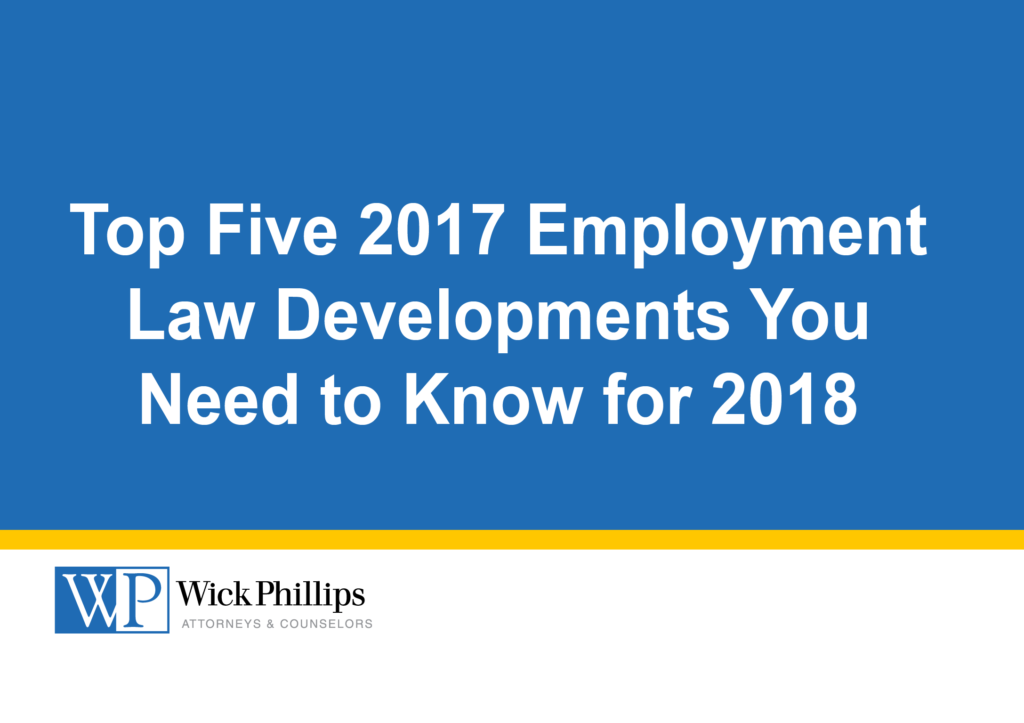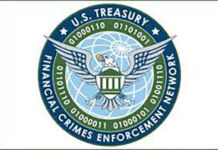
1. Another Employer Targeted for Background Check Violations Pays the Price.
Add Target to the list of employers who have had to pay big settlement dollars to settle claims related to employee background checks. Last year, the company agreed to pay $8.5 million to settle a class action lawsuit alleging that: 1) its consent forms contained additional, extraneous language beyond the required disclosures and authorization; and 2) it failed to provide adequate notice to job applicants before taking an adverse action, such as not hiring the job applicant because of the information in their background check. In settling, Target joined a growing list of employers who have paid out large settlements for alleged violations of the Fair Credit Reporting Act (“FCRA”), including Kelly Services ($6.4 million), Wal-Mart ($4 million), Publix ($6.8million), and Whole Foods ($803,000).
The Issue
The FCRA, a federal law that governs pre-employment background checks, requires that employers provide a disclosure to applicants before conducting a background check. If only it were that simple.
The FCRA presents multiple pitfalls for employers. Among those: crafting disclosures which run afoul of the technical requirements of the FCRA (by, for example, including a release of liability or employment information unrelated to the procurement of a background check in the disclosure form); or failing to follow the pre- and post-notice requirements when an employer takes an adverse action, such as a no-hire decision, based on the information it obtains in the background report. The problem for employers is that lawsuits under the FCRA cases are very attractive to plaintiff class action lawyers because the statute provides for statutory damages, punitive damages, and the recovery of attorneys’ fees by a successful plaintiff even if the employee suffers no actual damages.
The Takeaway
Although the rules employers must adhere to under the FCRA when conducting background checks may appear to be fairly straightforward, employers often overlook the technical requirements of the FCRA, which could expose them to costly litigation. Employers would be well-served to consult with trusted employment counsel to make sure that their disclosure forms and adverse actions processes are FCRA compliant.
2. No Video Policy in the Workplace? Not So Fast.
In July, the Fifth Circuit sided with the National Labor Relations Board (“NLRB”) against T-Mobile, finding that a “no workplace recordings” policy violated Section 7 of the National Labor Relations Act. Importantly, this ruling applies to almost all employers—even those whose workforces are not unionized.
The policy at issue prohibited all photography and audio or video recording in the workplace, encompassing even off-duty employees documenting wage schedules and other conditions of employment. This, the court held, would lead a reasonable employee to believe that the policy prohibited “concerted activity” protected by Section 7. The policy’s stated purposes, to “prevent harassment, maintain individual privacy, encourage open communication, and protect confidential information,” were not enough to justify such broad coverage.
To avoid costly NLRB investigations and litigation, employers should review their handbook policies related to photography and audio/video recording in the workplace to ensure that they are narrowly written enough to permit protected concerted activity. Even if the goal is to protect employee privacy, courts are often unsympathetic to overly-broad policies.
3. Employer Gets SLAPP’d For Misappropriation of Trade Secrets Suit Against Former Employees.
One new trend from 2017 that will continue in 2018 is the expanded use of the Texas Citizens Participation Act (“TCPA”). The TCPA is an anti-SLAPP statute. SLAPP stands for Strategic Lawsuit Against Public Participation. The TCPA is intended to protect citizens from lawsuits that infringe upon freedoms of speech and association by allowing the early dismissal of lawsuits that use the courts to limit such freedoms without a justifiable legal basis. The TCPA provides for automatic attorneys’ fee awards to successful movants. It changes no substantive law, but creates a procedural tool that forces plaintiffs to present a strong case much earlier in the litigation.
The TCPA is aimed at cases that directly implicate freedoms of speech and association, such as frivolous defamation lawsuits where a plaintiff sues a defendant to prevent the defendant from engaging in what is otherwise legal speech. However, in Elite Auto Body, LLC v. Autocraft Bodywerks, Inc., the Austin Court of Appeals approved the use of the TCPA in the employment context where an employer sued its former employees for trade secret misappropriation.
In Elite Auto Body, the former employees – mechanics – argued that the employer’s claims were intended to harass and chill their rights of association and speech. The court agreed, holding that the current statute’s wide-reaching language demanded dismissal of the lawsuit. The court seemed to appeal to the state legislature for an amendment limiting the statute’s reach, but there is no legislative session planned for 2018.
No doubt, the Court in Elite considered context (an employer going after relatively low level employees who had not signed non-competes), and the Austin Court of Appeals decision has yet to be adopted by the Dallas, Fort Worth, or Houston Courts of Appeals, much less the Texas Supreme Court. And, to be sure, there are exceptions in the TCPA for commercial speech. Nevertheless, until the legislature amends the TCPA’s statutory language, the statute will play a huge role in any litigation involving post-employment conduct. Employers should carefully evaluate how to proceed against former employees for conduct that could be construed as activity protected by the TCPA under Elite Auto Body.
4. A Kinder, Gentler NLRB?
Last year the NLRB reversed several employee-friendly positions instituted during the Obama Era, most notably the infamous “Browning-Ferris” decision concerning joint employment. The issue is this: joint employers may be held jointly and severally liable for another joint employer’s violations of the National Labor Relations Act, even where non-unionized workforces are concerned. Under Browning-Ferris, a company could be considered a “joint employer” if it held a legal right to control at least some essential terms of employment—even if it never actually exercised such control. Now, as before Browning-Ferris, the employer cannot be found a joint employer unless it actually exercises direct control over the employee’s terms and conditions of employment. Score one for employers.
In another important change, the NLRB will now consider employers’ justifications for policies that may impact employees’ rights under the National Labor Relations Act. Specifically, last month the NLRB released the Boeing decision, under which it announced a new standard providing that the Board will consider an employer’s “legitimate justifications” for a policy, in addition to the nature and extent of the policy’s impact on employees’ rights. Although good intentions are unlikely to excuse policies that clearly and severely limit employees’ rights under the Act, a “borderline” policy may be justified where, for example, the policy protects other important rights of employees—like privacy.
5. Dive In: Restaurants May Be Able to Broaden Tip Pools and Other DOL Updates.
In December 2017, the DOL announced proposed changes to the tip-sharing (also known as tip pooling) rules. Under current rules, employers can require tipped employees (like servers) to pool and share tips only with other employees who would customarily receive tips. Under the proposed rule, the standard would be relaxed to allow employers to require broader tip sharing, i.e., with employees who are not traditionally tipped, such as cooks and dishwashers. Take note, however: the proposed rule would only apply to employers who pay the tipped employees the full minimum wage and do not utilize the “tip credit.” Stay tuned: the comment period on the proposed rule ended on January 4, 2018, and employers could see issuance of a final rule soon. Finally, if the measure passes, employers should take heed – not all employees (think servers) are going to celebrate this change and may look increasingly to file suits accusing employers of “tip dipping,” or misappropriating tips.
Also, the DOL continues to signal that it will ease off of the regulations it issued in 2016 that would have dramatically increased the minimum salary employers could pay workers exempt from overtime under certain exemptions from about $23,660 to more than $47,000 per year. Most of those changes were put on hold by a Texas federal court on December 1, 2016—just weeks before they were set to go into effect.
Finally, companies with employees working outside of Texas should watch out for increased state and local minimum wages. Several states (including Alaska, Arizona, California, Colorado, Florida, Hawaii, Maine, Michigan, Montana, New Jersey, New York, Ohio, Vermont and Washington) and municipalities (such as Chicago, San Jose, San Francisco, Los Angeles, St. Louis, and Tacoma) increased the state-mandated minimum wage in 2017 or beginning on January 1, 2018. A few other jurisdictions (Washington D.C., Maryland, and Oregon) are scheduled to increase their state-mandated minimum wage on July 1, 2018. Federally mandated minimum wage remains unchanged at $7.25.
And a Closing Question: If the DOL Comes Knocking, Are You Ready?
After a somewhat slumbering final year under the Obama administration and first year under President Trump, Department of Labor investigations seem to be on the rise. If you have not recently done so, now is the time to review your employee classifications (exempt versus non-exempt) to ensure you are in compliance with the Fair Labor Standards Act. Remember, it only takes one disgruntled employee to trigger a friendly visit from the DOL.
To learn more about the articles above, or for any employment related question, please contact one of the members of the Labor and Employment Group below.
- Andrew Gould | 214.740.4022 | andrew.gould@wickphillips.com
- Marcia N. Jackson | 214.740.4024 | marcia.jackson@wickphillips.com
- Brett Myers | 214.740.4026 | brett.myers@wickphillips.com
- Michael Baum | 214.740.4048 | michael.baum@wickphillips.com
- Molly Jones | 214.740.4056 | molly.jones@wickphillips.com
- Paul Chappell | 214.420.4670 | paul.chappell@wickphillips.com
- Jacob Crumrine | 214.420.4446 | jacob.crumrine@wickphillips.com
- Jessica Toumani | 214.740.4046 | jessica.toumani@wickphillips.com





